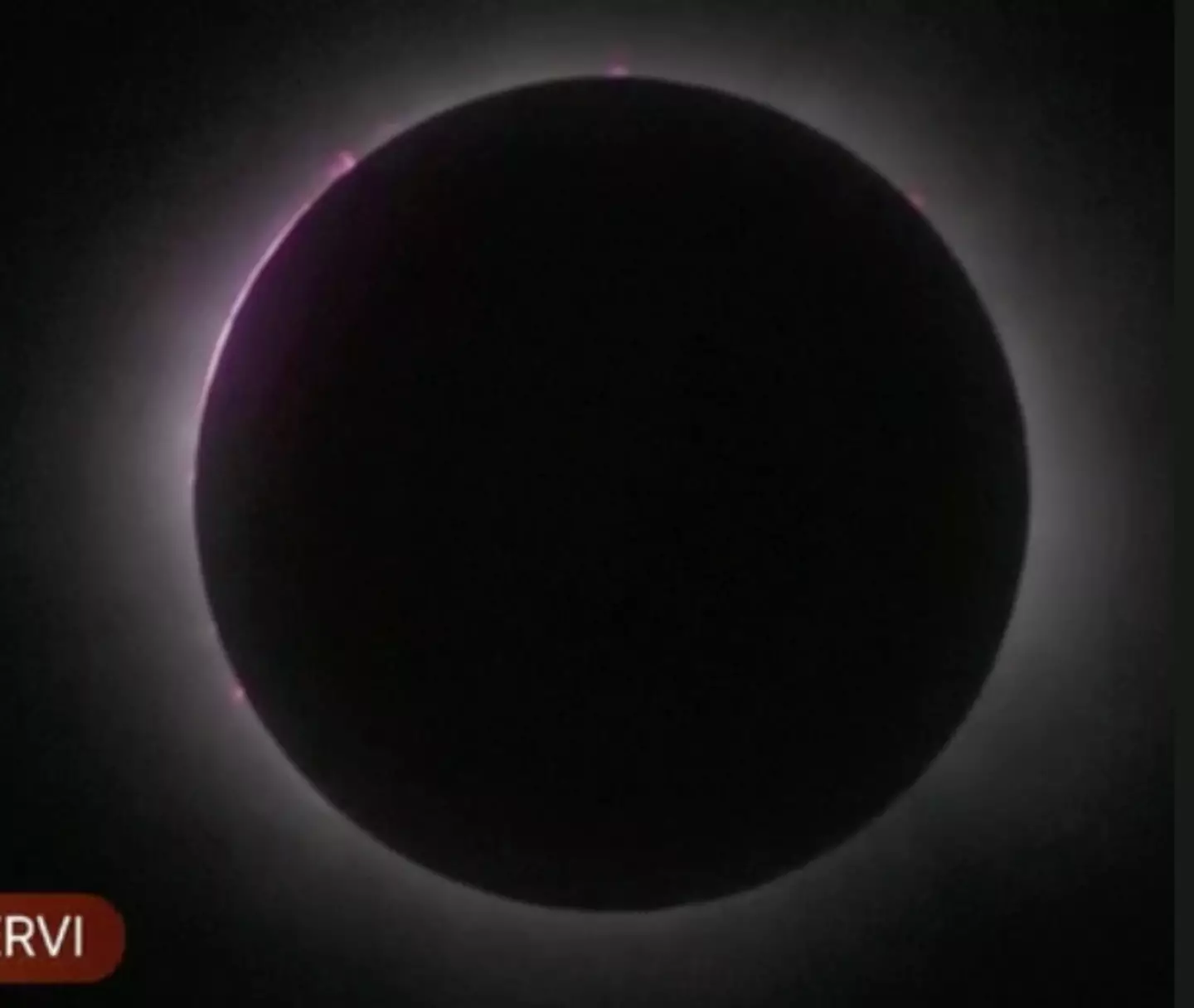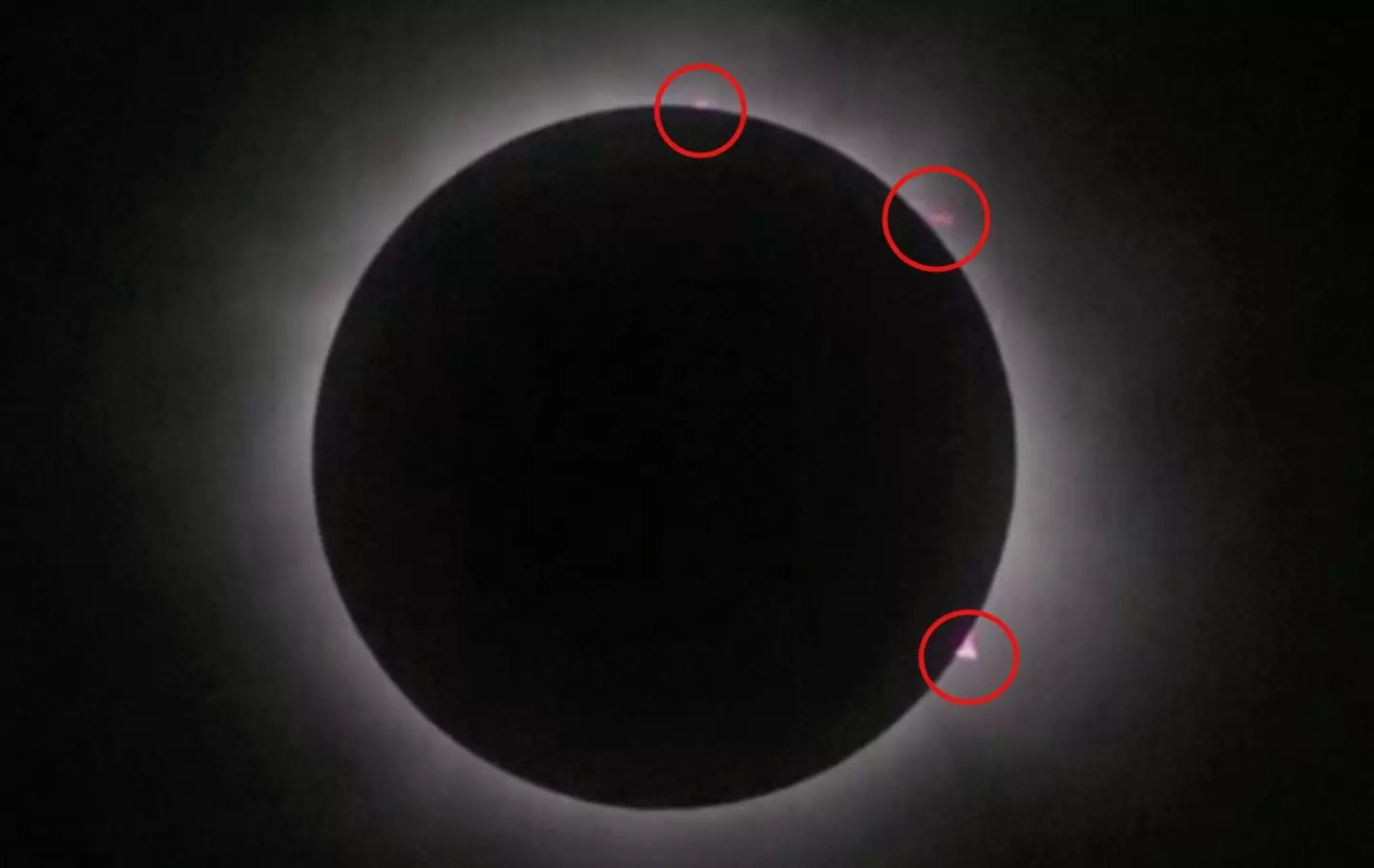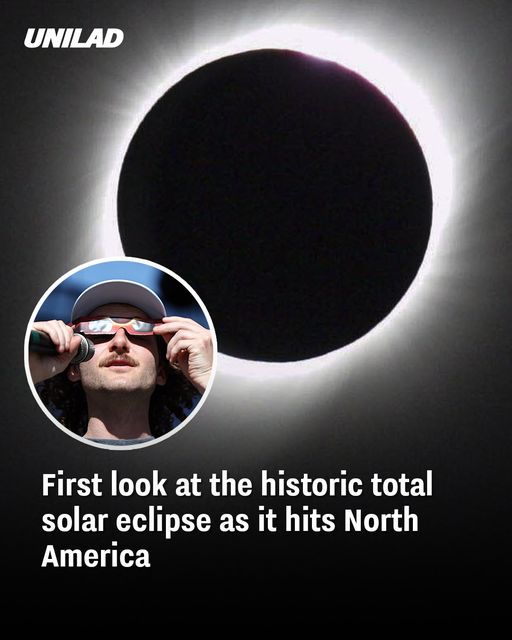
Featured Image Credit: Stringer/Anadolu Agency/Getty Images / Mario Tama/Getty Images
The total solar eclipse we’ve all been waiting for is finally here.
Budding astronomers across the Mexico, the US and Canda have been counting down the days until the momentous day, which lands today (Monday, April 8).
In the days running up to the historic event, a series of warnings have been issued to those flocking to areas close the the eclipse’s path of totality.
One of the biggest concerns was about the roads becoming extremely congested. With this in mind, people were urged to stock up on necessities prior to today’s eclipse so they could avoid the chaos on the roads.
Elsewhere there were concerns about cellphone reception being affected in certain areas as so many people would be trying to use it at the same time.
It was predicted that as many as one million tourists would be heading to Texas, with a further 500,000 flocking to Indiana and Ohio.
But those braving the gridlocked roads to catch a glimpse of the total solar eclipse had another fear – the weather.
Forecasters predicted cloudy weather for the States, something which would (obviously) hugely impact the visibility of the highly anticipated eclipse.
But it appears as if some lucky individuals were able to snap a shot of the eclipse.
It’s now been seen in Mexico, with crowds of people being heard cheering excitedly at the Moon perfectly aligned with the Sun.

People have waited years for this moment. NASA
In images taken of the eclipse via NASA’s cameras, you were able to spot some red flecks coming out from behind the Moon.
These were explosions taking place on the Sun that were visible to the naked eye – something that’s usually nearly impossible. The ones seen in Mexico are thought to have been solars flares, or maybe even coronal mass ejections (CME).
“If we get lucky, a CME will present itself as a twisted, spiral-like structure, high in the atmosphere in the sun,” Ryan French, a solar physicist at the National, told Space.com last month in the run up to the eclipse.
CME’s occur when a large cloud of energetic and highly magnetized plasma erupts from the solar corona into space, causing radio and magnetic disturbances on the Earth.

Solar flares or CMEs could been seen during the eclipse. NASA
Meanwhile, solar flares are ‘in intense burst of radiation coming from the release of magnetic energy associated with sunspots’, as per NASA.
The eclipse is now heading over to Texas and other parts of the USA.
Unfortunately, the momentus affair won’t be visible from the UK or other parts of the globe.
